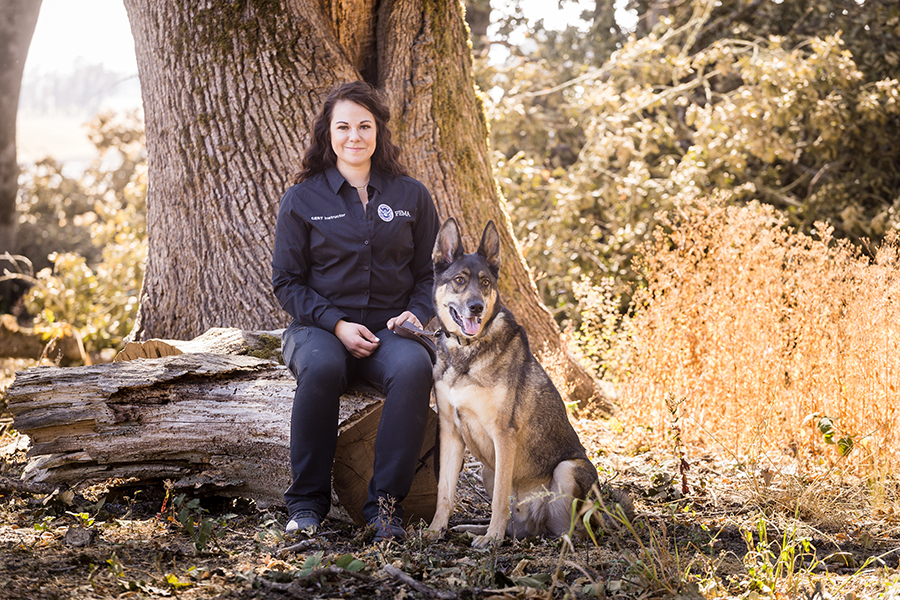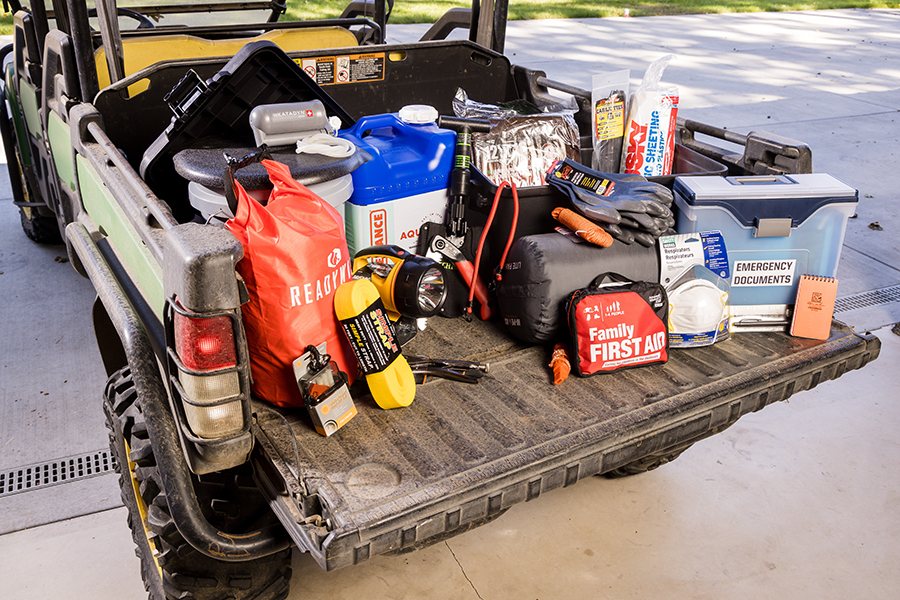Preparing for an Emergency with a 14-Day Supply Kit
September 25, 2021
Here in the Pacific Northwest, we don’t get a lot of flooding, tornadoes or hurricanes. But we do have plenty of wildfires. They say there’s also a good chance of some strong earthquakes in our future. Wherever you live in the Pacific Northwest, it’s a good idea to pack and store a 14-day survival kit for those times when the power is off, emergency personnel are out of reach, and your family simply needs to stay put and shelter in place.
To get some answers and complete a list of what is needed in a 14-day survival kit (with some coastal regions urging families to prepare for up to a month of food and water), we chatted with Meg Walker. This dynamo is a longtime Coastal employee, FEMA certified Community Emergency Response Team trainer, a certified search and rescue expert, and Vice President of the Marys Peak Search and Rescue out of Benton County.

Our Area Expert Knows How to Prepare
When it comes to search and rescue, Meg does it all. That includes working with her dog Maverick, a fit German Sheppard and Belgian Malinois mix, on his national certification and readiness as a member of the Region 3 Canine Search and Rescue. In other words, she knows how to be prepared and is happy to help others be ready for anything.
“If something happens, first responders might not be immediately available,” Meg said when asked why families should have two weeks of food and water on hand. “It’s all about being prepared.”

The Basics
- Water (at least one gallon of water per person per day, or have the means to purify enough water quickly, such as filtration straws, tablets, or a way to boil water)
- Food (at least a 14-day supply of food for each family member)
- Battery-powered or hand-crank radio with NOAA Weather Radio capability
- Flashlights (one for each adult)
- First aid kit (include pet-related first aid items as well)
- Extra batteries
- Whistle (to signal for help)
- Dust masks (one per person)
- Plastic sheeting or Tarp and duct tape (to create a safe environment in your home)
- Personal sanitation (moist wipes, garbage bags, and twist ties)
- Wrench or pliers to turn off utilities (gas, water, electricity)
- Manual can opener
- Local, paper maps
- Back up cell phone battery (or an off-grid method to charge your phone)
- Gloves
Extra Items
The basics will help you and your family weather some storms and disasters. To really prepare, experts urge you to have the following in your 14-day kit.- Prescription medications
- Over-the-counter medications (pain relievers, antacids, etc.)
- Extra pairs of glasses
- Infant needs (formula, bottles, diapers)
- Cash ($100 in small bills)
- Important family documents (copies of insurance policies, banking information)
- Sleeping bags and warm blankets
- Complete change of clothing for each family member
- Fire extinguisher
- Matches or Firestarter (in waterproof container)
- Paper cups, plates, napkins, and plastic utensils
- Paper and pencil
- Books, games, and other non-electric activities
- Bleach and eyedropper (to sanitize water if needed
- Vet Wrap for Pets & People
